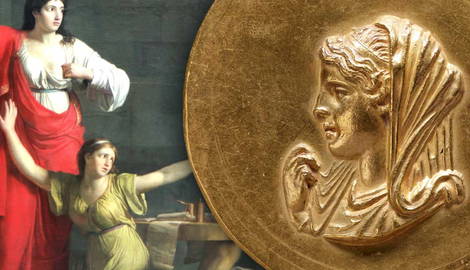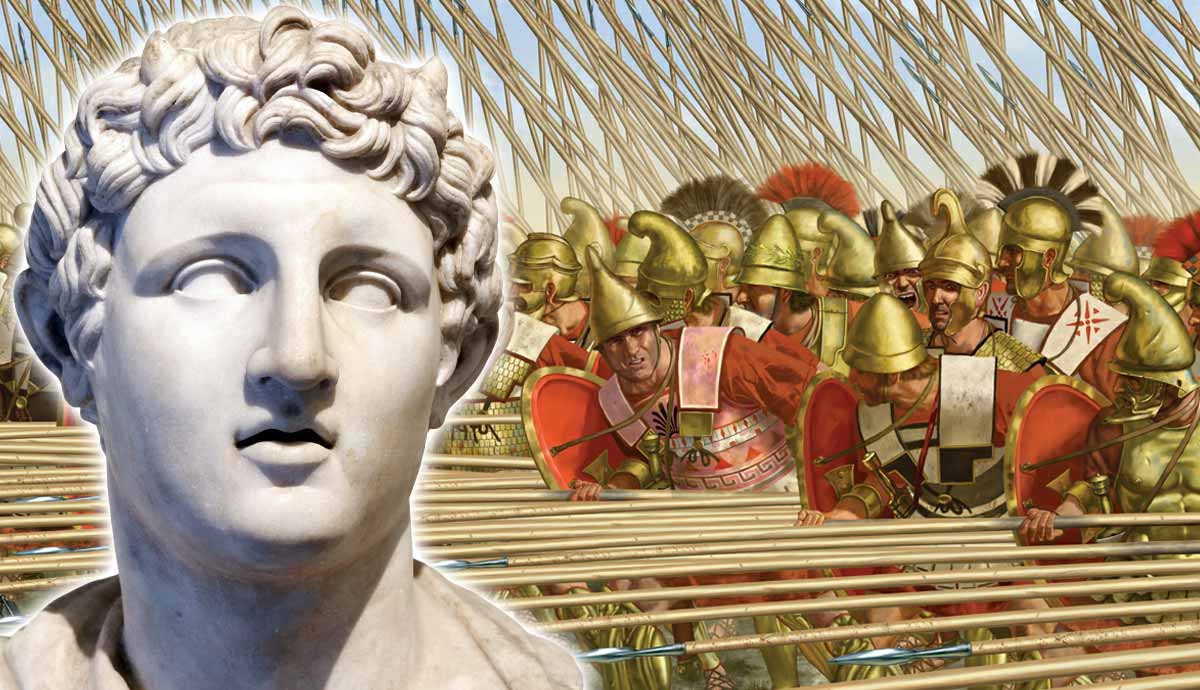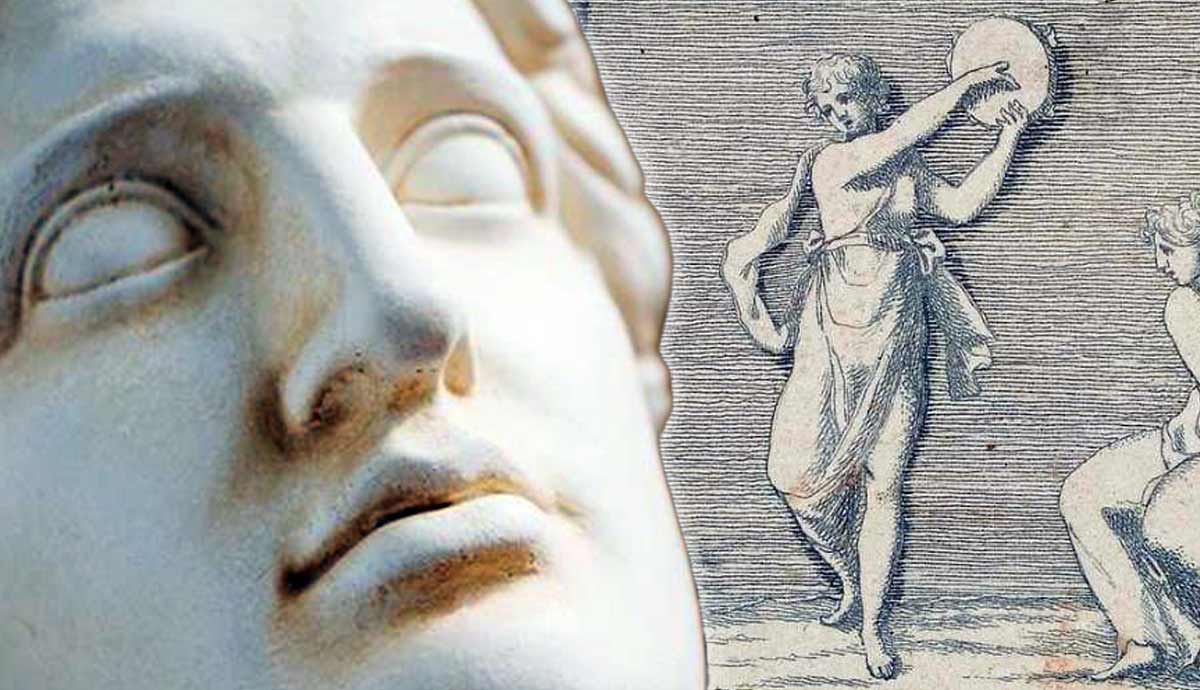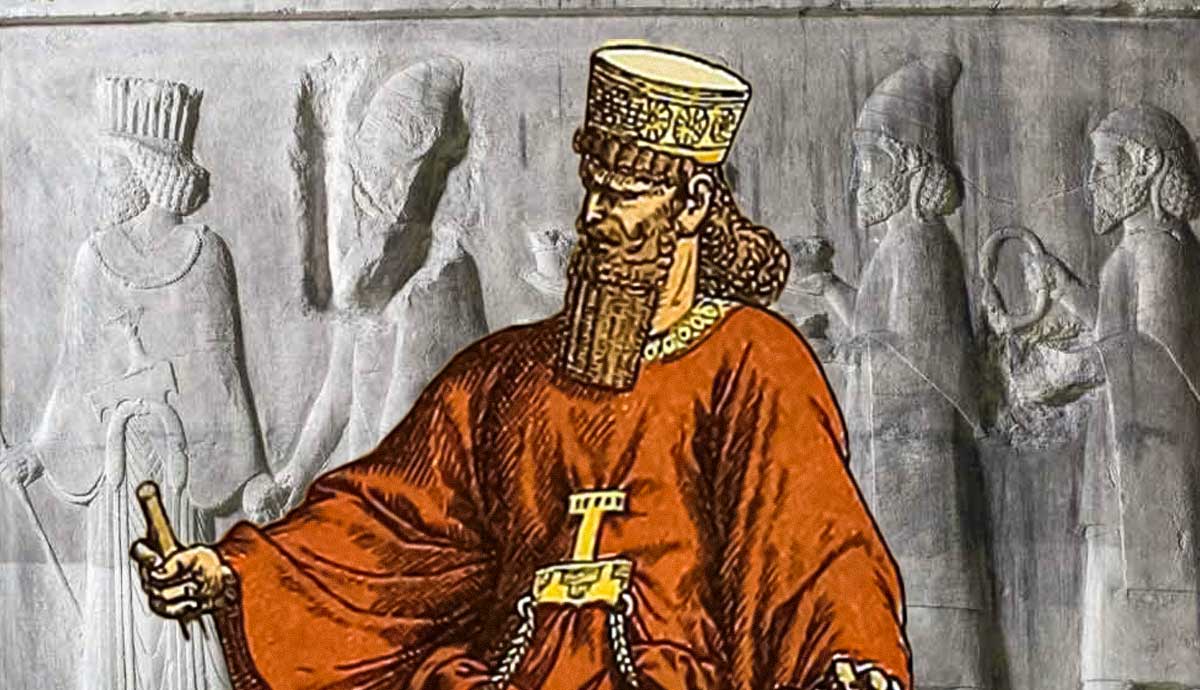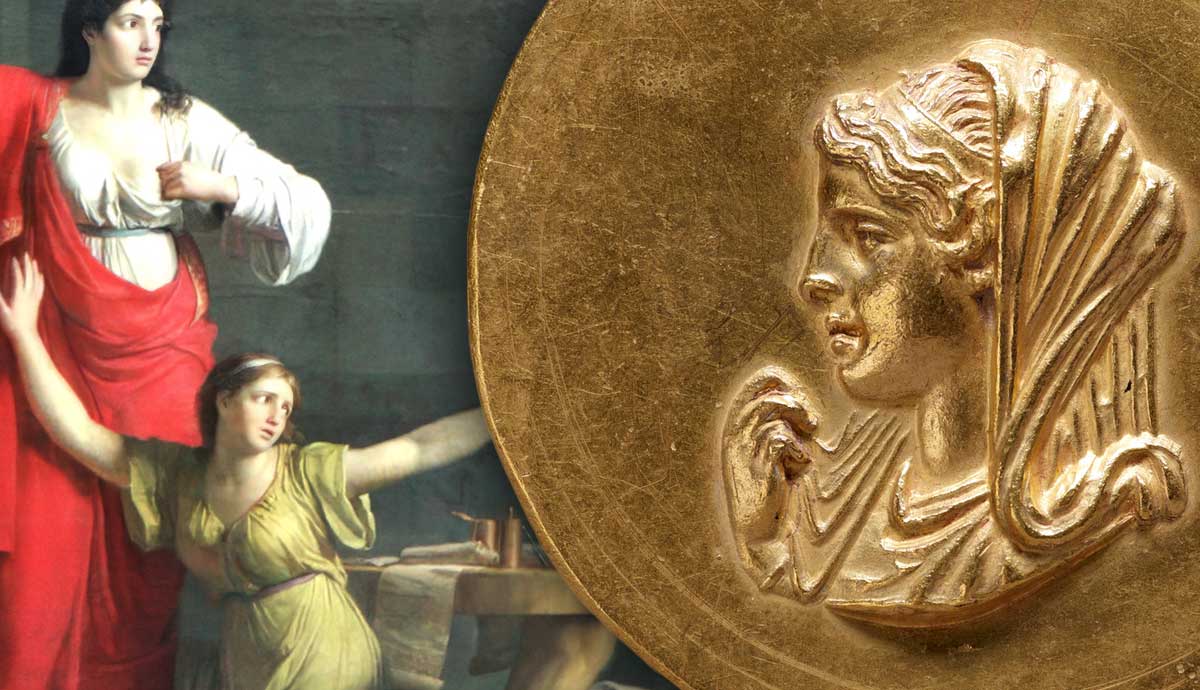
By the time Alexander the Great died in the summer of 323 BCE Olympias had over three decades of experience at the forefront of Macedonian politics, first as a wife and then as a mother of kings. She was one of the first ancient Greek women to have a significant impact on politics, both during the lives of her husband and son and following Alexander’s death. Between 323-317 BCE she became a central figure in the early phases of the decades-long War of Successors.
Olympias: Vengeful Queen or Ruthless Politician?

For decades Olympias had been at the heart of the court of her husband, Philip II of Macedon. A negative tradition portrayed her as a vengeful murderess. Her origins on the edge of the Greek world in Epirus, north western Greece, and a fondness for snakes gave her an exotic, almost demonic reputation. However, Olympias was little different than any other member of a ruthless court which frequently resorted to assassination and execution. Rather than jealous and vengeful, Olympias’ actions were probably rationally motivated by the need to defend her son’s position as heir to the throne and later as king.
The same pattern continued after Alexander’s death and became attached to his infant son Alexander IV, who was made joint king with Philip III Arrhidaeus, another son of Philip II who was previously judged incapable of ruling due to an unknown incapacity. Olympias fought for the rights of her grandson and allied with anyone willing to protect them.
Rivalry With Antipater

Olympias had withdrawn from Macedon during Alexander’s reign, partly due to tensions with Antipater, Alexander’s regent. The rivalry with Antipater reached such heights that she blamed him and his family for Alexander’s death. The timing of Alexander’s death had been fortunate for Antipater, who had been summoned by the king and possibly feared for his life. Olympias may have been voicing her belief in Antipater’s guilt, sincerely believing it, soon after her son’s death.
Olympias’ rivalry with Antipater certainly continued after Alexander’s death. Her initial involvement in the War of Successors was to try to prevent an alliance between Antipater and Perdiccas, regent and guardian of the kings, by attempting to arrange the marriage of her daughter, Cleopatra, to Perdiccas. This plan fell through and Perdiccas soon died on campaign in Egypt. But then the situation changed again.
Antipater died of natural causes in 319 BCE. Instead of passing control of Macedon and the two kings to his son Cassander, Antipater appointed a veteran officer, Polyphercon, as his successor. The removal of an old antagonist was probably welcome, especially as Polyphercon reached out to Olympias and asked her to return to Macedon and care for Alexander IV. However, Cassander was unwilling to accept being passed over and soon rebelled. With Macedon itself favoring Polyphercon and the kings, according to Diodorus Siculus, Cassander sought allies elsewhere and built a presence in Greece. Cassander, the son of an old rival and now the enemy of the official guardian of Alexander IV, grew into the major threat to Olympias and Alexander the Great’s family.
Marching to War

It seems Olympias, wisely, did not trust any of the powerful generals. Diodorus reports that she contacted the relative outsider among the generals, the Greek Eumenes, seeking his continued support of the isolated royal family and saying she placed little trust in anyone. Taking Eumenes’ advice, Olympias refused Polyphercon’s offer and stayed in Epirus to see how events unfolded. She did, however, start to take a more active role, trying, unsuccessfully, to win over the Athenians from Cassander.
When Cassander gained a foothold in Greece, Polyphercon was forced to march south. Not only were his campaigns unsuccessful, but in his absence, the situation in Macedon shifted again. When Olympias decided to return to Macedon, Adea Eurydice, a roughly 20-year-old granddaughter of Philip II and the wife of Philip III Arrhidaeus, took control and allied with Cassander. Adea had reason to fear Olympias. In the past, Olympias had been ruthless with potential threats and was rumored to have caused Arrhidaeus’ incapacity through poison, though there is no supporting evidence for the accusation.

Olympias could not allow Adea and Cassander to control Macedon and the kings. Polyphercon and Aeacides of Epirus supplied an army, which Olympias symbolically led. Adea gathered her own force and marched to the border with Epirus for what has been called the first war between women. Such was Olympias’ prestige that the Macedonians with Adea refused to fight and defected. Adea and Arrhidaeus were soon captured.
There are different ways to interpret what happened next. Negative sources, such as Justin, depict a vengeful Olympias first starving and then executing Adea and Arrhidaeus and massacring the supporters and family of Cassander. This cruelty lost her the support of the Macedonians, setting up her fall. However, removing the negative judgement from the events allows us to see a different picture.
Adea and Arrhidaeus were indeed executed, but the story that she imprisoned and walled them up can be read either as torture or hesitation. Their eventual executions were handled in a traditional manner, which respected their royal status. A brother of Cassander was killed and the tomb of another desecrated. Since Olympias considered the family responsible for the death of Alexander, this may have been punishment for their apparent treason. A few dozen supporters of Cassander were killed, but it was not a wholesale purge. When she returned to Macedon, Olympias was ruthless, but no more so than any other Macedonian political figure during this violent age. There is no sign of support being withdrawn from her in the remaining months of her life.
Cassander Reacts

Olympias’s return to Macedon in 317 BCE brought her to the height of her political influence. But by the middle of 316 BCE, she was dead.
Hearing the news that Olympias had returned to Macedon while campaigning in Greece, Cassander quickly moved north. Bypassing potential opposition from Polyphercon’s allies, he was in Macedon before any real defense could be organized. Cassander and his commanders held off Olympias’ defenders and forced her and the royal family to retreat to the city of Pydna. Cassander had moved too quickly and outmanoeuvred Olympias. Both he and his commanders were more capable than Polyphercon and Aeacides while Olympias’s other ally, Eumenes, was far away. The events of 317-316 BCE look more like a military victory for Cassander than support for Olympias evaporating.
Olympias held on in Pydna for several months, enduring a terrible siege. Forces loyal to Olympias and the royal family fought on with little success. Only when the war looked lost did people in Macedon seek terms with Cassander. Sometime in the spring of 316 BCE, with her remaining soldiers starving, Olympias was forced to surrender. Cassander promised to keep her safe, but this promise was soon forgotten.
Final Act

Olympias and the royal family were now in Cassander’s hands, but she met her end with dignity and defiance. Cassander moved cautiously against the still popular Olympias. He convinced the families of some of Olympias’ victims to bring her to trial, refusing to let her speak or make any defense. Next, Cassander offered to let her escape to Athens, but Olympias refused. Instead, she wanted to speak to the Macedonians. Olympias seems convinced that she still retained support. Cassander refused to let her speak.
Less subtle methods were now applied before Olympias could rally support. Two hundred soldiers were dispatched with orders to kill Olympias, but when they confronted her, they could not do it. In the end, only the families of her victims were willing to come forward. A group of them went to the house where she was held. Olympias had already faced down one group of assassins, but there was no escaping her fate this time. While few details are recorded, even the largely negative sources report that the bravery and dignity with which she met death was worthy of the mother of Alexander the Great and the mythical hero Achilles from whom her family claimed descent.
Olympias was right to fear Cassander. Having killed Alexander the Great’s mother, he went on to murder his wife and son, extinguishing the Argead dynasty. In the end, this suited all the potential successors. With the nominal kings out of the way, the remaining powerful generals declared themselves kings of parts of Alexander’s empire, creating the framework for the Hellenistic Age.
Bibliography:
Carney, E. (2006) Olympias: Mother of Alexander the Great. Routledge: New York.
Jouanno, C (1995). “Alexandre et Olympias: de l’histoire au mythe”, Bulletin de l’Association Guillaume Budé, 1995.3 pp. 211-230.
